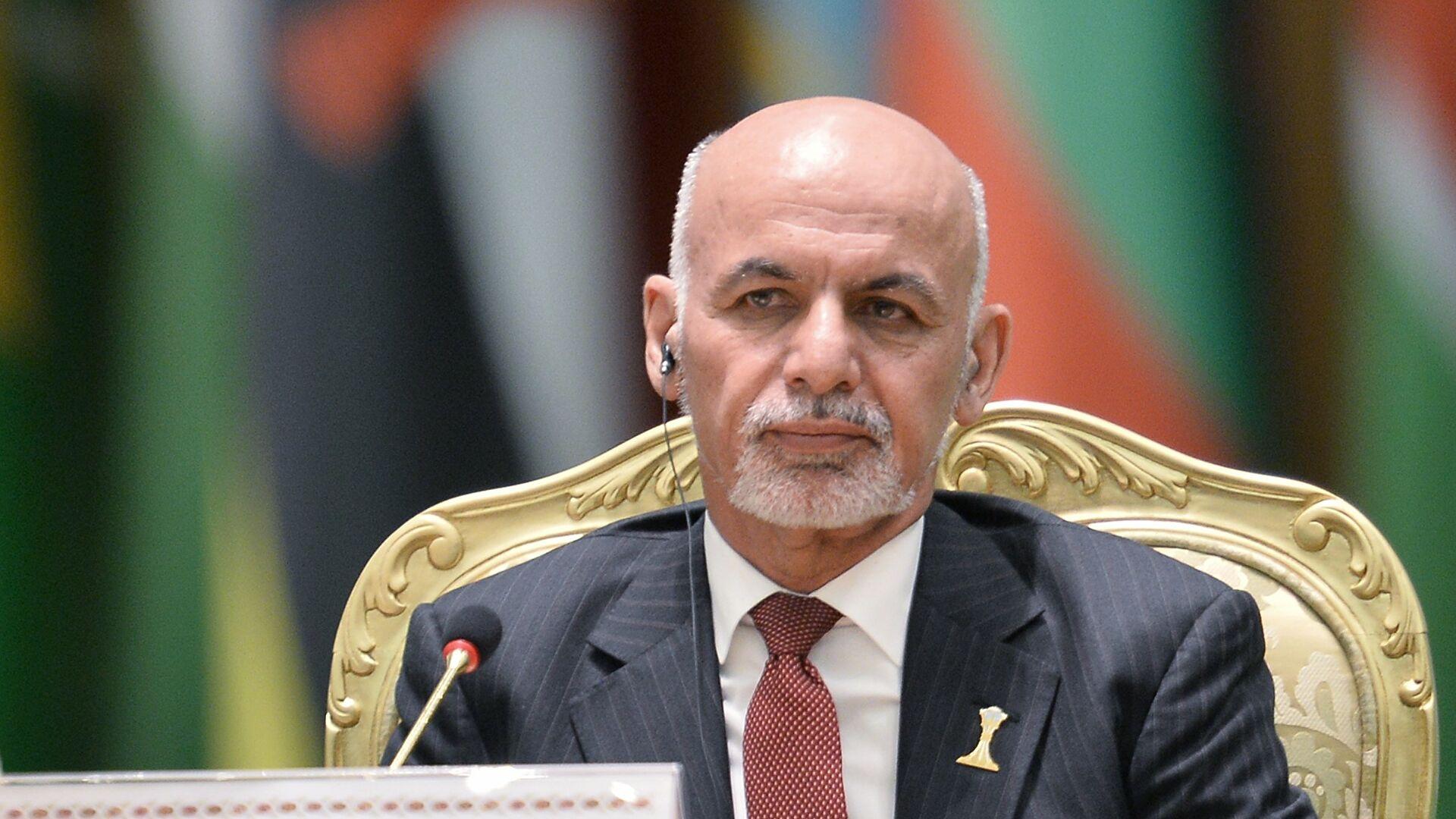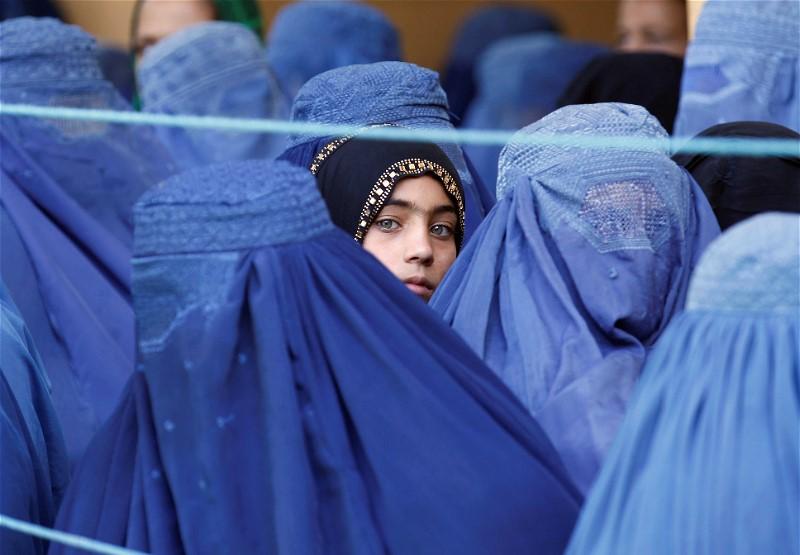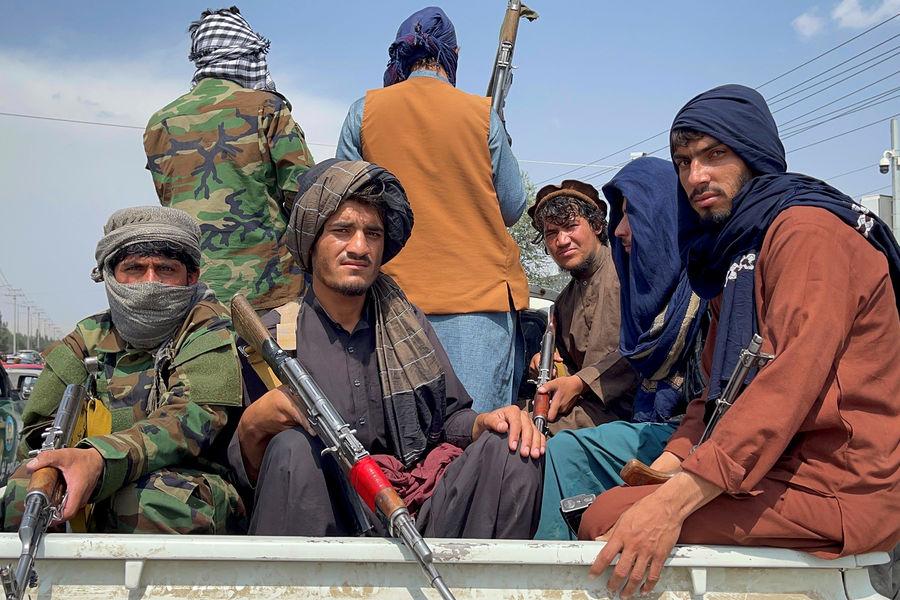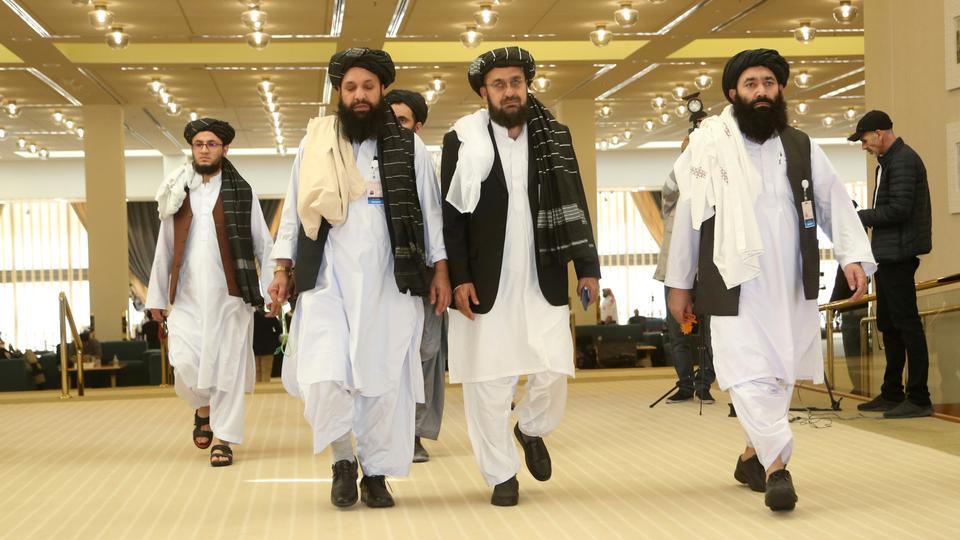Anniversary of Kabul's fall: An event that shaped the course of history? Review by Maxim Petrov
The fall of Kabul on August 15, 2021, was an event that shaped the course of history.
On August 15, 2021, the Taliban took control of Kabul, the capital of Afghanistan. The city fell completely into Taliban hands just hours after President Ashraf Ghani left the presidential palace and fled Afghanistan. Soon after, rumors spread that the helicopter in which he flew away was stuffed with dollars. Perhaps this is a legend; after all, the Afghan head of state had other ways to transfer money abroad.

But before that, 90 per cent of Afghanistan had come under Taliban control during the withdrawal of US troops. The fall of Kabul and the pro-American regime came as a big surprise. Few analysts predicted such a thing. The Taliban had between 50,000 and 100,000 bayonets, mostly masters of guerrilla warfare with light and medium weapons, against which the Ghani regime could field about 300,000 of its own military and police, well-trained (as many thought) special forces, and heavy equipment.
More precisely, the fall of the Afghan capital came as a surprise to outside observers. The US military was aware of the state of the government army and security forces. They could not fail to understand that the regime would collapse like a house of cards. According to statements and interviews, given later by some US military officers to the American media and the Israeli press, the corruption of the regime was reaching a fantastic level. Some of the equipment and weapons donated by the Americans to the Afghan army were sold to the Taliban, some to others, and as a result the garrisons on the ground often had neither ammunition nor military experience. The Afghan military practically did not conduct independent operations, acting as auxiliary units to the US Army. In addition, they were not paid, as money was stolen by officials and senior officers. Government laws and taxes were in effect, at best, only in Kabul. The police and military imposed tribute on the local population to earn their livelihood. Thus, for example, they kidnapped people for ransom. Of course, such a regime could not be popular and sustainable. The Afghan security forces were good at robbing defenseless people, but they were not good at fighting.
The Taliban knew this and quietly waited for the Americans to leave, occasionally launching guerrilla raids and diversions against the Americans in order to hasten the departure of the heavily armed, but highly susceptible to loss of life, US army.
Gradually the Taliban's areas of domination increased. No one stopped them from firing on the US military with brand-new American-made rifles with laser sights. The Taliban had non-aggression agreements with many local Afghan garrisons, and a parallel Taliban administration worked there. After the Americans left, power literally fell into their hands.
But here is the first paradox. The Taliban were experienced guerrillas who had been fighting for over 20 years and had won. It would seem that this should have meant that they had not only military but also administrative talents: it is not so easy to provide logistics and infrastructure for an army of 50,000 to 100,000. Some Afghans thought that they would be able to what is called "restore order." However, the Taliban proved to be poor administrators. Incompetence, factional splits and mutual infighting, and lack of inclusiveness (the Taliban refused to include representatives of other social groups in the government) quickly became a source of bitter disappointment for the Afghan population. The country's economy collapsed. In contrast, under an ultra-corrupt, militarily weak pro-American regime, the economy grew rapidly.

The fact is that over the decades of American occupation dozens of countries and international organizations provided financial aid to Afghanistan. The scale of Afghanistan's dependence on it was such that three-quarters of the budget expenditures were financed by this aid. The country received funding from 70 states and 30 different international organizations with the United States being the main donor. India also played an important role in these processes.
According to researchers studying this issue, since the early 2000s, Afghanistan's economy has grown rapidly, quadrupling in size. But at the same time, the population was growing. As a result, Afghanistan has remained one of the poorest countries in the world, ranking 213 out of 228 in real GDP per capita in the CIA World Factbook. About 90% of Afghans (nearly 40 million in total) live on less than $2 a day. This is the level defined by economists as the global poverty line.
Nevertheless, although much of the aid was stolen by local officials, Afghan workers were paid out of these funds. Hundreds of schools and medical centers were built.
With the rise of the Taliban, sources of financial aid dried up. Many international organizations refused to support Afghanistan. As a result, doctors and teachers were unemployed, as were many other government workers. Some continued to work without being paid for months. It is estimated that part of the population is on the brink of starvation. The Taliban's rule has turned into an economic catastrophe.
In addition, the regime has many problems both inside and outside the country.

The Taliban is a movement that unites the armed part of the Pashtun peasantry and is led by the families of wealthy Pashtun landlords, landowners, and traders. The Taliban engage in all kinds of business, from drug trafficking to exporting lapis lazuli from the country, and they have also taxed local traders. Ideologically, the Taliban are adherents of the Sunni school of political Islam - Deobandi. This school is intolerant of the Sufis, Shiites, and some other branches of Islam.
Thus, we are talking about a group with a rather rigid framework. The Taliban were never elected by anyone to run the country. They took it by force of arms. Meanwhile, the Pashtun peasantry constitutes only about a third of the population of Afghanistan. For other ethnic-confessional communities and for cities accustomed to a different, more culturally open life in the last 20 years of American occupation, the Taliban is not something familiar, close, and normal. They are strangers in predominantly Tajik Kabul, which is freer in terms of customs and mores. They are enemies of the Shia Hazaras, whose community is about 7 million people, and many Uzbeks and Kyrgyz. Yes, most Pashtun women living in villages are very conservative, but not all Afghan women, including villagers, share their views. Also, Pashtuns have long ceased to be the majority in the country. The Tajik population alone now accounts for about 40 per cent of Afghanistan's population. And finally, although two-thirds of Afghans live in rural areas today, townspeople make up about a third of the country's population and it is absolutely not a fact that they are all delighted with the customs of traditional society or what the Taliban pass off as the moral norms necessary for everyone.
In an acute economic crisis, it is particularly difficult to subjugate all this diverse population, speaking different languages and practicing different branches of Islam. After all, Afghanistan is a huge country, almost the size of Germany, with a population of 40 million. So the Taliban is tightening the screws. Attacks on Shiites have increased. Tajik and Shia Hazara women, many of whom work, complain about Taliban attempts to ban them from going to work. Demonstrations by women protesting regime policies were dispersed. The Taliban recently passed a law making the hijab compulsory.
Relations between the Taliban and the outside world remain tense. In the recent past, some countries have provided them with financial and military assistance. This is especially true of Pakistan and Iran. Pakistan feared the growing influence on Afghanistan of its eternal rival, India, one of the influential sponsors of the Ashraf Ghani government. If Indian influence in Afghanistan increased further, Pakistan could fall into the Indian geopolitical "jaws" - Pakistan's military's worst nightmare.
The Iranians, US's main rivals, gave the Taliban weapons to fight the American army because they feared American geopolitical "jaws" (the American military presence simultaneously in Iraq and Afghanistan was perceived by Tehran as the most serious threat). Therefore, Shiite Iran helped the Taliban even though these weapons could be used against fellow Shiite Hazaras. In addition, for the Iranians, agreements with the Taliban on the use of water resources of the Helmand River, which flows through the territory of both countries and on which more than a million Iranians depend for their livelihood, were important.
For its part, China counted on the use of Afghanistan's natural wealth. Afghanistan is a real Aladdin's cave. There are large reserves of lithium (raw materials needed for modern green energy), uranium, iron, gold, silver, copper, and other minerals needed by the powerful Chinese industry. Their reserves are now estimated at 3 trillion dollars. However, due to poorly developed local infrastructure, the Chinese considered plans to develop Afghan resources as a long-term project.
However, all interested parties were disappointed. The Taliban has repeatedly clashed with neighboring states since coming to power. Skirmishes occasionally occur on the borders of Tajikistan, Iran, and Pakistan. This is due both to border disputes in the case of Iran and Pakistan and to the fact that the Taliban support the Islamist forces that oppose the regime (in the case of Tajikistan) and that the government responds to the Taliban in return by supporting armed opponents of the Taliban regime.
The latest reports of such clashes came on August 12. Taliban officials in Kunar province in eastern Afghanistan reported that the Pakistani military and Taliban forces engaged in armed clashes along the Durand Line (the unmarked 2,640-kilometer border between Afghanistan and Pakistan).
Many countries, such as Russia, Iran, China, Uzbekistan, and Pakistan, have maintained their embassies in Afghanistan and are negotiating with the Taliban. However, no country in the world, including Pakistan, has yet to officially recognize Taliban representatives as the legitimate leaders of the country. Shekab Ansari, an international security expert, believes that Pakistan does not recognize the Taliban as the Afghan government because Pakistan's main ally, the PRC, does not allow it.

China fears the actions of Uighur separatists and Islamists on its territory. It would like assurances from the Taliban that they will not allow the movement to use Afghanistan as its base. Obviously, such assurances have not been obtained so far. But then the Taliban would get neither recognition from the Chinese and their allies, nor Chinese investment.
Therein lies the second paradox. It would seem that the Taliban, coming to power in a rapidly impoverishing country, is interested in recognition and support from neighboring countries. But nothing of the sort is happening. No country in the world has yet officially recognized the Taliban government, not least because of the Taliban's defiant behavior toward its neighbors.
The victory of the Taliban on August 15, 2021, was paradoxical for another reason. The event demonstrated the weakness of the US and the administration of President Joe Biden. Watching the rapid onslaught of the Taliban and the equally rapid withdrawal of Americans from Afghanistan, one could conclude that it was another sign of the decline of American influence in the world.
Perhaps, this factor influenced Moscow's decision to solve the "Ukrainian issue," while for China it could become a reason to strengthen the onslaught on Taiwan. Since the US is weak and unable to defend its allies militarily, other powers might consider expanding their spheres of influence.
However, the same events forced President Biden to adopt a different policy in the case of Ukraine and Taiwan. Washington's motives for changing its approach to foreign policy were also determined by the defeat in Afghanistan.
On the one hand, Americans were now simply obliged to demonstrate to the world toughness, inflexibility and readiness to fight back militarily, or at least to equip their allies with everything they needed. After all, any new retreat meant their inability to conduct an active foreign policy and would show that, as an ally, the United States was unreliable. On the other hand, there was the question of the relevance of the Democratic Party and Joe Biden personally to the challenges America faces in international politics. A new defeat would lead to the collapse of the Democrats in the US elections.
Altogether, this forces Biden to increase military aid to Ukraine and to make statements that the US is prepared to defend Taiwan militarily. Israeli political analyst Alon Pinkas believes that by showing toughness in Ukraine, Biden is not only getting rid of the bitterness of the Afghan defeat but also showing to China his willingness to come to the aid of its allies in Taiwan in case of Chinese armed expansion.
The situation might have turned out differently. Perhaps the fall of Kabul on August 15, 2021, was the event that determined the course of history.








